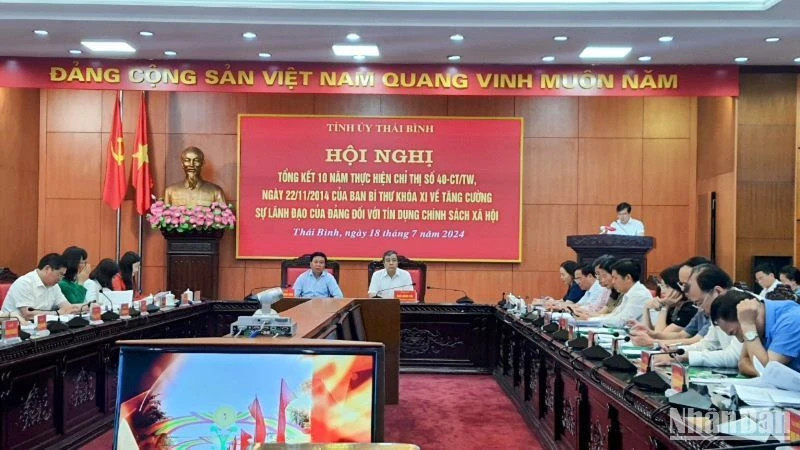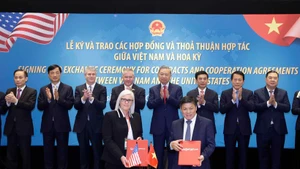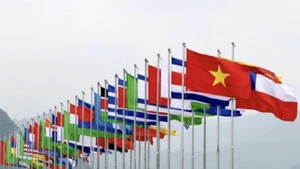After 10 years of implementing Directive No.40-CT/TW, the outstanding debt of four socio-political organisations has increased. As of June 30, 2024, socio-political organisations are coordinating with the Vietnam Bank for Social Policies (VBSP) to manage 97,570 customers with a total of 4,484 billion VND, accounting for 99.88% of total outstanding loans at the VBSP.
Credit scale is increasingly expanding, the average annual growth rate reached 7.66%. Average outstanding debt is 45.50 million VND/household, an increase of 26.65 million VND compared to 2014. Credit quality is increasingly consolidated and improved, total overdue debt and frozen debt is 5,021 million VND, accounting for rate of 0.11% of total outstanding debt; down 0.03% compared to 2014.
Speaking at the conference, Ngo Dong Hai, Secretary of Thai Binh Provincial Party Committee, affirmed that after 10 years, awareness of all levels and sectors has been raised one step higher, especially at the grassroots level, because this is an important resource with contributions to socio-economic development, employment, sustainable hunger eradication and poverty reduction, as well as towards ensuring social security. Through this, leadership and direction in the deployment of social policy credit as well as the implementation of Directive No.40-CT/TW has also improved.
He emphasised that more than 111,000 households in Thai Binh have escaped poverty through loans from the Bank for Social Policies system, adding this is a more telling and meaningful number as it has made an important contribution towards helping the locality develop from a purely agricultural province to entering the stage of industrialisation and modernisation today, while creating conditions for more sustainable development in the coming time.
















